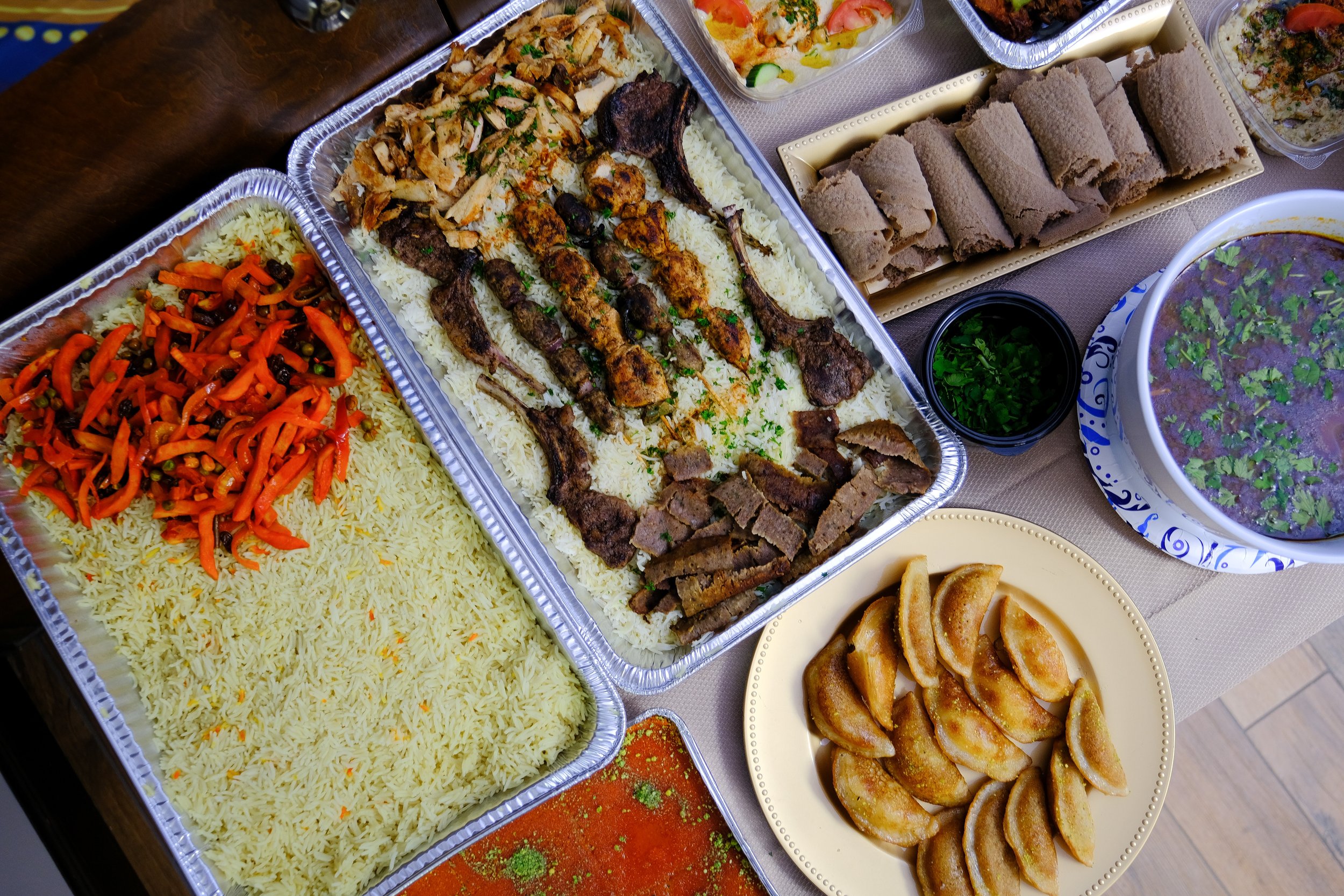Flavors of Ramadan
When someone mentions Ramadan, the first thing many of us think of is a month of fasting from all sustenance, food, and water. But Ramadan is not just a time for doing without. It is a celebration and food is a big part of that celebration.
Fasting time is ended at sundown, when Muslim families first break their fast with dates. For Khadija Ali, a Rochester resident originally from Somalia and her family, they eat dates and drink water. For Tarteel Elsheikh, her North Sudanese tradition calls for dates and juice. The Algerian tradition followed by Soraya Belfodil calls for milk with their dates. Then comes the feast.
“‘Iftar’ means ‘to open a fast’ and it is the meal eaten after sunset during the month of Ramadan,” explained Ali. “We have late night feasts because we are getting ready for the next day’s fast ...and another feast before the sun rises.” This morning meal is called “suhur.” In addition to being a celebration of Ramadan, these meals also help sustain those who are fasting during the daylight hours.
The iftar meal is then usually started with a traditional soup. Soup is a common theme woven into the fabric of Ramadan. “This soup is very important,” explained Belfodil. After a day of fasting, “it is gentle on your stomach.” Her Algerian soup is made with meat, usually lamb or beef, and includes chickpeas, tomatoes, and spices.
Ali’s family makes a hearty soup with goat meat, tomatoes, carrots, and spices. The recipe is a tradition passed down through the family. “My grandmother used to do the recipe with 50-plus family members,” she said. “My mom cooked it for us and she taught me the recipe. I do it with my family…so it’s like something that continues.”
For Elsheikh, Ramadan means her mothers cooking and that includes a milk-based soup with tomatoes, onions and spices, such as dried okra powder and cumin.
Another common theme with the soup is that all of the recipes involve some type of grain. For Belfodil, this grain is called “frik,” a crushed green wheat. For Ali and Elsheikh, their soups are served with something akin to oatmeal.
Ramadan is also the time for our Muslim neighbors to slow down and reflect on their personal connections with their faith, their community, and their world. Reinforcing connections with your community and charity play a large part in this month-long celebration.
“This [Ramadan] is a good reminder when you are hungry [from fasting] that some people are going through a worse situation,” said Elsheikh, a Rochester resident originally from North Sudan. “So what are you doing to help them?”
For the local Sudanese community, everybody becomes family. Thus, you will often find the entire community gathered together on a Saturday with each family bringing dishes to share. “It’s good to share foods…,” said Elsheikh, “...It’s one of things that Ramadan is all about. Share your blessings with other people and be thankful for what you have.”
It is customary to invite others to Ramadan meals. A Muslim family might invite those who are single or who don’t have family that live close by. “It’s like a way for you to give back,” said Ali.
“Ramadan is for us to remember the poor, the people that can’t eat, they can’t provide for themselves,” said Belfodil.
In the weeks leading up to Ramadan, children are taught how to fast in short increments. “They have to fast for a half-hour or an hour,” said Belfodil. During this time frame, the children participate in a short fast and abstain from food and drink. These beginner fasts are also a cause for joy and celebration. “We celebrate the day that she is fasting or he is fasting,” said Belfodil, “It’s amazing.”
Khadija, Soraya, and Tarteel. Three women from different geographies who were brought together in a place called Rochester. The similarities of their faith and differences in their food and traditions are interwoven with the threads of a community. Threads that create the beautiful tapestry that is Ramadan.
Ramadan Kareem. Ramadan Mubarak.
Anna Matetic is a Rochester writer who enjoys learning about the diverse cultures represented in Rochester, especially through food and conversation.
Cover photo: Khadija Ali (center), cofounder of Pamoja Women, a nonprofit working to empower women and girls of East African heritage
All photography by William Forsman for Med City Beat












